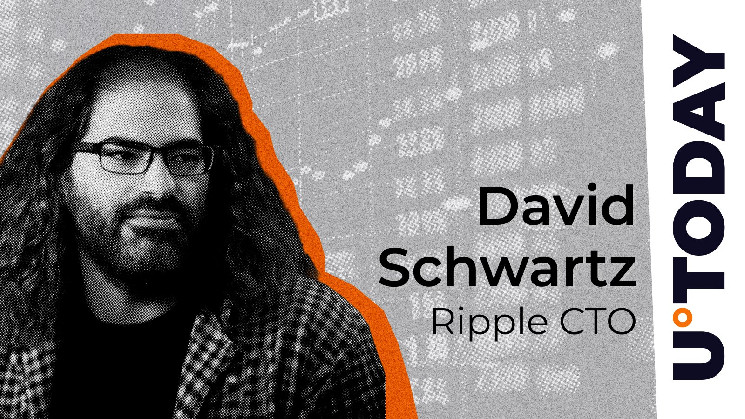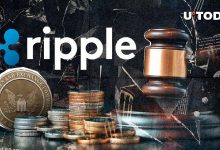Ripple CTO Offers Hot Takes on Operation Chokepoint 2.0

In a recent X post, David Schwartz, Ripple Labs’ Chief Technology Officer (CTO), delivered a sharp critique of Operation Chokepoint 2.0. He condemned the act as a dangerous abuse of power that undermines due process and constitutional rights.
Notably, Operation Chokepoint 2.0 allegedly pressures banks to sever ties with certain businesses operating in the crypto industry. Cutting ties, as hinted, may come without proof of wrongdoing. This approach has sparked intense debates about government overreach and the misuse of indirect regulation. Critics argue it undermines due process and sets a dangerous precedent for targeting lawful activities.
Operation Chokepoint 2.0 and indirect regulation
The government allegedly uses the Operation Chokepoint 2.0 initiative to convince financial institutions to deny crypto players services. This comes at the expense of pursuing legal action or presenting evidence of wrongdoing against the accused.
Due to this initiative, legitimate enterprises and individuals do not gain access to essential banking services despite due process. Meanwhile, the government avoids its responsibility to prove any wrongdoing in court.
By avoiding formal charges or evidence, the government indirectly punishes crypto businesses, raising concerns about fairness, transparency and accountability.
Operation Chokepoint 2.0 was (is?) a government operation to pressure banks to unbank “disfavored” people and businesses, despite no evidence or accusations of unlawful conduct. The mechanism used, indirect regulation, is a despicable evil that is used as an end run around due… https://t.co/tMnXKfiF5D
— David “JoelKatz” Schwartz (@JoelKatz) November 30, 2024
Indirect regulation lies at the center of the controversy, as it holds one party responsible for the potential wrongdoings of another. This is evident with the sanctions on Tornado Cash by the U.S. Treasury Department. This sanction was lifted by a Federal Court recently in a major win for privacy.
This approach unfairly burdens institutions like banks to monitor their clients and undermines key constitutional rights.
It bypasses due process by punishing people or businesses without formal charges and suppresses free speech by indirectly penalizing lawful expression. It also exploits privacy by forcing third parties to collect and share private information.
Ripple CTO’s call to action
David Schwartz was clear and direct in his post, calling for the end of all indirect regulation. He argued that this backdoor approach could be a better substitute for genuine law enforcement and proper legislative processes.
Instead of making laws or proving wrongdoing, he flagged the government’s leaning on private institutions to do its dirty work.
Schwartz warned that indirect regulation could have serious long-term consequences. This could include making it harder to track illegal activity by pushing businesses underground. He also pointed out that this system punishes individuals without a fair trial, creating an unjust shadow justice system.
While acknowledging past damage, Schwartz focused on future solutions rather than pursuing retroactive action. He called for legal safeguards to prevent indirect regulation from undermining constitutional rights and trust in the financial system.





 Bitcoin
Bitcoin  Ethereum
Ethereum  Tether
Tether  Dogecoin
Dogecoin  USDC
USDC  Cardano
Cardano  TRON
TRON  Chainlink
Chainlink  Stellar
Stellar  Hedera
Hedera  Bitcoin Cash
Bitcoin Cash  LEO Token
LEO Token  Litecoin
Litecoin  Cronos
Cronos  Ethereum Classic
Ethereum Classic  Monero
Monero  Dai
Dai  Algorand
Algorand  OKB
OKB  Cosmos Hub
Cosmos Hub  Stacks
Stacks  Theta Network
Theta Network  Gate
Gate  Maker
Maker  KuCoin
KuCoin  Tezos
Tezos  IOTA
IOTA  NEO
NEO  Polygon
Polygon  Zcash
Zcash  Synthetix Network
Synthetix Network  Tether Gold
Tether Gold  TrueUSD
TrueUSD  Dash
Dash  Holo
Holo  Zilliqa
Zilliqa  Enjin Coin
Enjin Coin  0x Protocol
0x Protocol  Qtum
Qtum  Basic Attention
Basic Attention  Siacoin
Siacoin  Ravencoin
Ravencoin  Bitcoin Gold
Bitcoin Gold  Decred
Decred  NEM
NEM  DigiByte
DigiByte  Ontology
Ontology  Nano
Nano  Status
Status  Huobi
Huobi  Hive
Hive  Lisk
Lisk  Waves
Waves  Numeraire
Numeraire  Steem
Steem  Pax Dollar
Pax Dollar  BUSD
BUSD  OMG Network
OMG Network  Ren
Ren  Bitcoin Diamond
Bitcoin Diamond  Bytom
Bytom